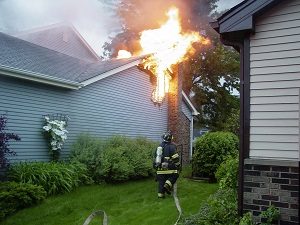
Everyone knows what a fire is. But what does fire really mean?
Everyone knows what a fire is. After all, it is only one of the most fundamental forces of nature. In fact, it is so abundant and frequently-used that we take it for granted. The entire course of human history would be far different had we not unlocked the secrets of flame and achieved mastery over it. Then again, there are the times when blazes control us, rather than the other way around. What does fire really mean?
What Is It?
Before we continue, it’s only fair that we take a closer look at this elemental phenomenon. Chemistry is the main focus here since fires result from a sudden chemical reaction. A fuel source and the presence of heat to ignite something are the other components needed to spark a reaction. What’s missing from this equation? Oxygen, as oxygen is the last component required.
Did you know that fires can be friendly or unfriendly? It should go without saying, but your bonfire where you roast hot dogs and marshmallows is a far cry from a wildfire that consumes a forest. Regardless of what the situation is, fires can be broken down into numerous smaller categories. Let’s have a look.
Different Classes of Fire
Class A: These burn everyday items such as wood, paper, and cloth. Perhaps the most common type.
Class B: These burn ignitable liquids. Some examples include hydrocarbons and alcohols. Flammable gases that act as convenient firestarters belong to this category as well.
Class C: This category is where you’ll find the classification for electrical fires. Electrical fires are also quite frequent, no matter if it’s in the home or at your place of business. If an electric current is active, it is a Class C; however, if there is no active current, it merely becomes a Class A instead.
Class D: Any metals that can combust fall into this category. Some examples include potassium, sodium, aluminum, and magnesium. While they might not seem like metals at first glance – except aluminum, of course, these are all apparently types of metal.
Class K: It’s only fitting that cooking oils such as animal and vegetable fats can start Class K fires. K is for kitchen, after all.
Commercial and Residential Fire Prevention from Judd Fire Protection
If you want to ensure your home and business are safe throughout the year, trust Judd Fire Protection, LLC. We have over two decades of experience with design, installation, service, and inspection of residential and commercial fire protection systems. We service clients throughout the Maryland, Pennsylvania, Washington, D.C., Virginia, and West Virginia. If you are interested in finding out more about our services and protecting your home and business, give us a call at 410-871-3480 or contact us online. For more fire safety tips, follow us on Facebook, Twitter, and Pinterest.
